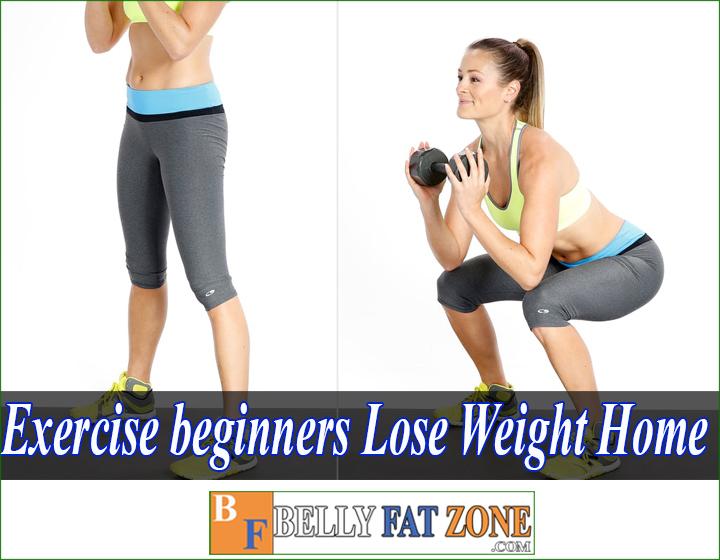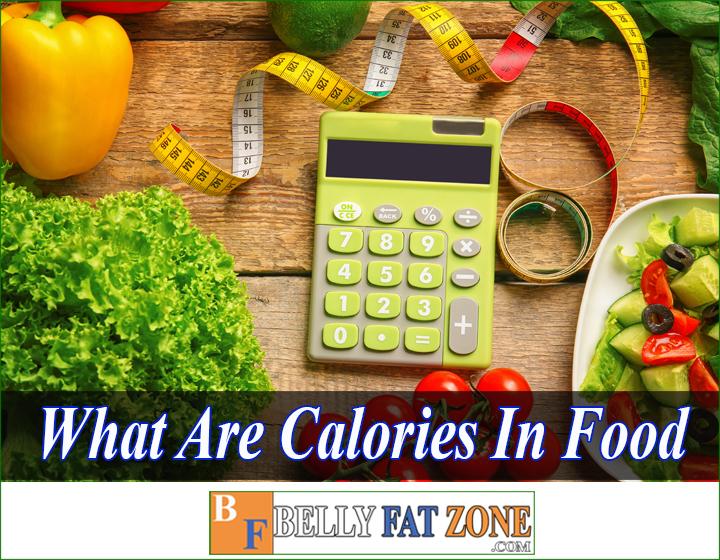Everyone wants to have a healthy body, but the problem is that not everyone can control time and own it to take care of their body, especially during weight loss and fat loss.
Everyone wants to lose excess fat and lose weight fast but must ensure their health without affecting work and other activities in life.
So to know if you are losing weight properly and safely or not, we have to understand how to lose weight safely and how much to lose weight accordingly.

- But not everyone is lucky enough to have a body; you can feel very pain when you find yourself overweight in the mirror, not to mention the health risks if you are obese.
- Obesity, being overweight, is everyone's obsession; it makes you less confident, always feels heavy and sluggish.
- One of the best ways to eliminate excess fat and become healthier is to make changes to your diet by eating healthy foods and controlling calories per serving.
- But whether you have a safe and proper diet and weight loss?
- Join Bellyfatzone.com to dissect the problems of a safe and healthy weight loss diet!
This article will solve those problems for you to have an overview of safe and effective weight loss and overall health.
I. The period of safe weight loss planning
1. Why do you want to lose weight?
Obviously, understanding your reasons and goals will pave the way for your goals to be achieved more easily.
Determining why you want to diet to lose weight safely makes every meal plan meaningful and worth the effort you put in.

Diabetes management: If you are diagnosed with diabetes, you must change your eating habits.
Cutting or eliminating sugar from everyday foods is the key to controlling your diabetes and staying healthy with it.
Reducing the risk of heart disease: Eating healthy and clean foods will help lower your cholesterol levels and help you eliminate excess fat, reducing your risk of heart disease.
Postpartum diet: During pregnancy, women are cared for by both mother and baby by eating lots and lots of nutrients, but after birth, your body will be swollen and fat, and you are ready to diet to get in shape.
Get ready for swimsuits: Most women lose weight when summer starts to come, and the prospect of wearing swimwear gives them more motivation to take action.
And the right diet can make the difference to being bikini ready or frightened.
Read more: How to Lose Weight Without Gaining It Back?
2. Develop large muscle mass

You may be interested in adding muscle and healthily gaining extra weight.
Protein is indispensable in building muscle mass, so your diet should maximize recommended daily protein intake.
Read more: Why Do Gyms Fail?- You Should Know To Be A Winner
3. Make sure you can safely lose weight
Before you go on to any new eating plan, it's best to consult with your doctor to make sure the diet isn't dangerous.
Tell your doctor about your diet plan. Any diet below 1200 calories a day can be dangerous.

Michelle May, a health care practitioner, said: “All forms of rapid weight loss are caused by restricting calorie intake, dehydration, muscle wasting, and low metabolism so that the body can receive less. calories that still exist ”.
Body fat. It also changes the percentage of body fat, which increases the risk of disease outbreaks and type 2 diabetes.
Some people use a calorie calculator to measure how much food they consume, others by gram (protein, whole grains, etc.), your decisions will help you decide a clearer picture of your diet.
Review your prescription medications with your doctor. It is important to ensure that your diet plans are synchronized with any possible nutritional guidelines related to the prescriptions you take.
For example, if you take an ACE inhibitor to lower your blood pressure, you need to monitor your intake of bananas, oranges, and green leafy vegetables.
If you are taking tetracycline pills, you may need to avoid dairy products while taking the pill.
4. Review your current eating habits
Before you change what you are doing, you need to know what you are doing now. Keeping track of what, when, and where you eat gives insight into your current eating habits.

Keep a food diary. Put a magazine in the kitchen or by your bedside and jot down what you eat (meals, snacks, small “tastes” from your friends' plate – all), time of day you eat, and where you eat (kitchen table, sofa, bed).
Subscribe online. Several websites offer online tools that allow you to track your eating habits electronically. If it's almost your smartphone, it'll be easy for you to track.
5. Determine why you are overeating
We all have different eating habits, and the causes are also different. Being aware of the cause is the first step in managing your diet.
Stress: One of the biggest causes of overeating is stress. When we feel too sad or anxious, we often use food for comfort.

If this is a problem for you, you need to manage stress or make healthy food choices to cope with this habit.
Fatigue: When we are tired, we are less likely to make better food choices.
If you find you often eat while you're tired, you will need to think about how you can rest more and make sure not to eat bad foods when you're tired.
Lonely or depressed: unable to find something to do?
If you find that you turn to snack a lot when you're alone, you might think about supplementing your new diet with some new activities or hobbies that will take you out of the house, keep you engaged and prevent you from overeating.
Too hungry: if you stop eating because of a busy schedule, you will find that you will compensate by eating everything if you have the time. If this is your problem, be sure to break up the meals.
II. Choose healthy foods
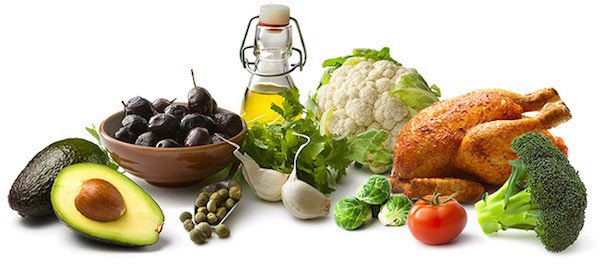
1. Learn about calories
Most dieters say they understand and control calories, but the overwhelming majority also say they don't really know how many calories they need.
We have the mindset that wanting to lose weight requires fewer calories, more weight loss, but really, you need to know more and pay more attention to where your calories come from and how much you consume.
Men reported eating an average of 2,600 calories per day, with women consuming around 1,800.
You may need less if you are trying to lose weight, but you must always eat at least 1,200 calories per day; if, below that threshold, the body will go into a starvation mode, and it will be ineffective and inefficient fat is not lost.
Ask a nutritionist or personal trainer to help you figure out how many calories you should eat each day for healthy weight loss.
Choose foods wisely: choose foods high in fiber (whole grains) and protein (lean meats). These foods will help you feel full for longer and give you more energy.
Avoid “empty” calories that don't give the body much energy. Alcohol and fast foods like French fries are examples of calories that do not serve many nutritional purposes.
2. Follow the instructions of a dietitian exactly
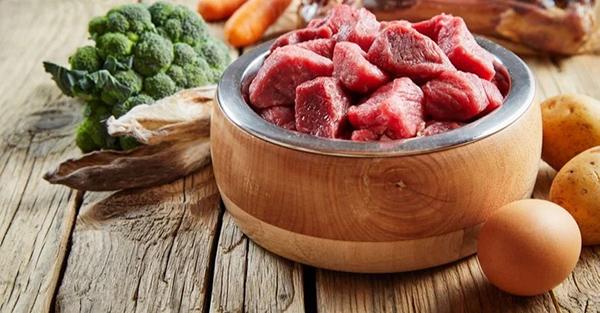
USDA has dietary recommendations that ensure you get the right nutrients.
It means that you eat the right amount of food from the food group without worrying about choosing the wrong food.
You can also change the type of food in your diet type, for example, eating only apples and not other fruits.
Other important recommendations include: getting 10% less of your daily calories from sugar, 10% saturated fat, and 2300 mg less sodium per day.
Besides, there are specific recommendations for how much food you should try to eat each day. As below:
- Eat nine servings of fruits and vegetables daily. One fruit serving is equivalent to about 1 cup of chopped fruit or one small piece of fruit. One serving of vegetables is equivalent to 2 cups of green vegetables, green leaves, or about 1 cup of cut vegetables.
- Eat six servings of whole grains a day and at least half of whole grains. One serving of nuts is equivalent to a slice of bread or 1/2 cup of rice or pasta.
- Eat two to three servings of milk a day, but try making low-fat dairy. 1 cup of milk is equivalent to one part of milk.
- Eat 2-3 servings of protein per day. A serving of meat is 3 oz, or about the size of an adult's palm. One serving is equivalent to one large egg, 1 teaspoon of peanut butter, 1-ounce walnuts, and 1/4 cup beans.
- Try to “eat rainbows,” which means eating colorful foods (blueberries, red apples, asparagus, etc.). Different colored foods mean you are getting different nutrients and vitamins.
3. Consume more lean protein
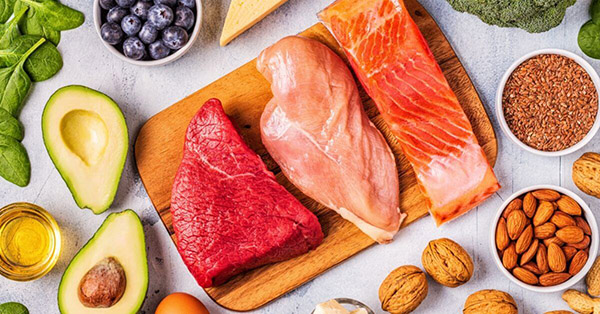
Your body needs protein to build muscle, provide immune protection, and keep your metabolism on track.
To get the benefits without any harmful substances associated with protein sources, choose foods high in protein and low in fat.
Choose fat-free milk over whole milk, ground beef, or ground chicken.
Avoid fatty dairy products, organ meats like liver, fatty meats, ham, sausages, bacon, fried or breaded meats, and egg yolks.
Become a fan of fish. Certain types of fish are rich in omega-3 fatty acids, reducing fat in the blood called triglycerides.
You will find the highest amount of omega-3 fatty acids in marine fish, such as salmon, mackerel, and herring.
Be friendly with beans. And peas and lentils – legumes are generally good sources of protein and contain no cholesterol, and are less fat than meat.
4. Choose whole grains
Whole grains are the plant's entire seed and contain three parts: germ, bran, and endosperm.
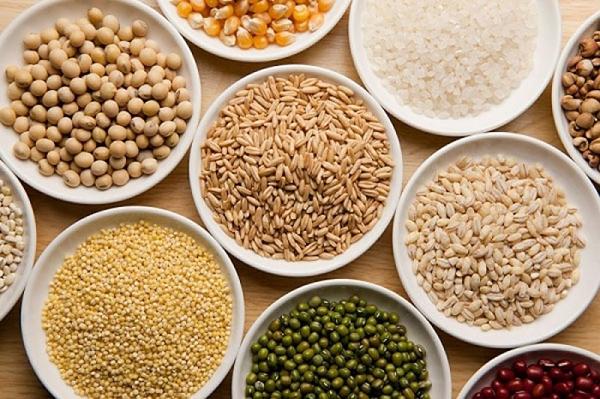
Unfortunately, when plants are purified, the bran and sprouts are removed, and about 25% of the seed protein and at least 17 important nutrients are lost.
For all the benefits, look for foods labeled as whole grains.
Reap the benefits: According to many documented studies, eating whole grains contains many benefits.
These include a reduced risk of stroke, heart disease, type 2 diabetes, inflammatory disease, colorectal cancer, gum disease, and asthma, maintaining a better weight, healthy carotid arteries, and stronger blood pressure levels.
Whole grains are found in many products. It's not just that cereals, flour, and bread can be whole grains;
Pasta, cereal, cookies, tortillas, pancake mixes, and other cereal products may be labeled whole, so read the ingredients carefully.
5. Don't ignore healthy fats
One of the most common dietary mistakes people make is to ignore fatty foods, but not all fat is bad.
Healthy fats are part of your diet plan. Monounsaturated fatty acids (MUFA) are a type of healthy fat that is polyunsaturated fat and offers certain benefits such as lowering LDL (the bad) cholesterol, increasing or maintaining HDL (the kind) cholesterol good), helps stabilize insulin levels, and control blood sugar.
MUFA-rich foods include avocados, canola oil, nuts (almonds, cashews, pecans, nut butter), olive oil, olives, and peanut oil.
6. Say no to unsaturated fats
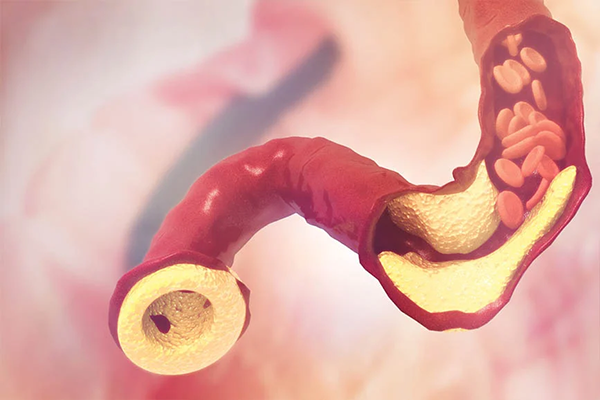
Trans fats (unsaturated fats) raise bad cholesterol and lower good cholesterol, cause weight gain, increase the risk of heart disease, cancer, stroke, and infertility.
Among the biggest sources of trans fats are fried foods and commercially packaged foods, especially baked goods.
7. Pay attention to the ingredients of each product
Paying attention to nutritional labels on food packaging can help you ensure that you're making healthy choices.
One of the most important parts of the label is the ingredient, nutrient information. This tells you how many calories are eaten in each package and the nutritional information per serving.
You should also be aware of how many calories are in each meal.
Try to limit the following nutrients: trans fat, saturated fat, and sodium. They have not only been linked to obesity but have also been linked to heart disease and high blood pressure
Look for foods high in fiber, vitamin A, vitamin C, iron, vitamin D, and calcium.
8. Self-cooking
Eating out or buying food from outside is convenient, quick, and easy. But it means you have no control over how your food is prepared or the ingredients used.
One of the most effective ways to lose weight is to cook meals at home. You can choose healthy cooking methods (e.g., baking instead of frying) and fresh ingredients.
Plan your meals. By making a menu weekly, you will be less likely to go on track and call out midweek.
You can make things easier on your own by preparing healthy meals to keep in the refrigerator and eat when needed.
Have fun cooking. Treat yourself to a new set of knives or a cute apron. These can give you the motivation to spend more time in the kitchen.
9. Are you allowed to have a Snack?
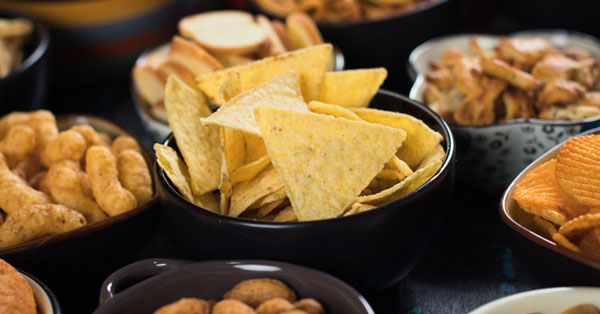
Good news! You really need to have a snack while you are on a diet. Eating regularly keeps your metabolism going and will help your body burn more calories during the day.
Healthy snacks can also reduce hunger and keep you from overeating during meals.
It is important to make sure you are making healthy snack choices. Reach for fresh fruits and vegetables, nuts, or low-fat milk. Try some cucumber slices with a sauce for an afternoon snack.
Keep healthy snacks on your desk.
III. Absolutely not doing things
1. Avoid trendy diets
It can be very tempting to try the latest trends in the diet. The media is often full of stories about celebrities who have tried a trendy diet and have had great success.
However, it's important to remember that not only is the diet usually ineffective, it can also be detrimental to your health.
Most fad diets require you to cut out one main food group, such as carbs.
The most important part of a healthy diet is making sure you are eating a complete meal plan that includes all of the nutrients. Avoid diets that require you to cut out food groups.
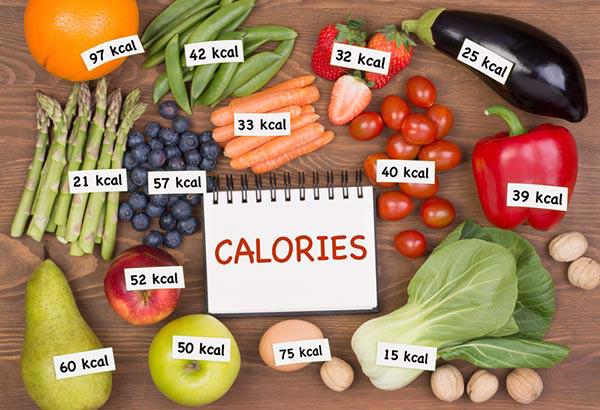
Certain fad diets can make you sick. Many fad diets promote eating a very low-calorie count, which can be dangerous to your health.
Instead, eat the recommended number of calories for your body type and make healthy weight loss choices.
2. Limit processed foods
Processed foods and fast foods contain very high amounts of sodium, saturated fat, and sugar, limiting them.
The most recent government dietary guidelines for Americans recommend that no more than 10% of calories come from saturated fat.
If you're on a 1500-calorie diet per day, that means you can eat 15g of saturated fat per day – fast-food burgers can have anywhere from 12g to 16g.
3. Stay away from sugary drinks
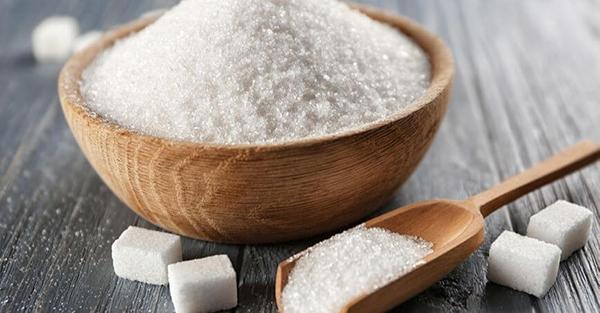
Sugary drinks, especially soft drinks, have been linked to weight gain and obesity.
Adding more water will make you feel fuller and may reduce your intake at mealtime.
Make the water more appealing to your taste buds by adding slices of citrus, cucumber, mint, or other herbs.
The juice seems healthy, especially the drink made from 100% juice, but it's high in sugar. Drink it in moderation or add water for some nutritional benefits with fewer calories.
In a study by Harvard University researchers, sugary drinks were linked to 180,000 deaths per year worldwide, 25,000 people in the United States alone.
Another 2013 study by scientists at Imperial College London found that type 2 diabetes's risk increased to 22%. 12 oz is consumed per day.
4. Avoid certain ingredients
Maybe your health condition is not allowed to use certain ingredients in products; please read the labels carefully.
Celiac disease. Celiac disease is a digestive disorder caused by an intolerance to gluten, a protein found in wheat, rye, and barley.
Thanks to a growing awareness of the needs of people who can't tolerate gluten, some gluten-free products are now more popular.
Hypertension. A dangerous condition and a precursor to heart disease and stroke, hypertension can be caused in part by a diet predominantly on fruits, vegetables, and lean protein.
The DASH diet – short for the dietary approach to preventing hypertension – has been shown to lower blood pressure. It is recommended by several health organizations, including the National Institutes of Health, and is ranked 1st best overall diet in the US News & Best Diet by World Report 2012.
Food allergies. If you suspect a food allergy, be sure to check with your doctor before use. Eight foods account for up to 90% of food allergies: peanuts, tree nuts, milk, eggs, wheat, soybeans, fish, and shellfish.
If you have any of these allergies, read food labels carefully to avoid choosing items that could cause an allergic reaction.
IV. Choose a good lifestyle
1. Do not suddenly change the diet
It's tempting to imagine how much weight is lost with adopting a new diet, but putting yourself under the pressure of expectation that your body can't adapt in time is easy to give up.
Take a slow and steady approach to make things more efficient and easier to maintain.
2. Be physically active

The right diet is a great way to start living a healthier lifestyle. However, you will see the best results if you also start a healthy exercise regimen at the same time.
Research shows that a combination of diet and physical activity will have positive benefits for your overall health for weight loss.
Try to be active for at least 60 minutes a day. You can split it down for easy management and implementation.
Practice outdoors instead of indoors. People who exercise outside say they prefer to be outside. Explore your neighborhood or go hiking in the districts close to home.
Find a friend. When you plan to exercise with a friend, you are more likely to stick to that plan. Ask a friend to join you at yoga or go for a walk with you after work.
Read more: Benefits Of Running in The Morning
3. Full rest

If you don't get enough sleep, you may be more likely to gain weight. When you rest low, your body produces more cortisol, which is the stress hormone.
This can make it easier for you to approach safe foods rather than healthy choices.
Try to get 7 to 9 hours of sleep each night. People tend to have a healthier body weight than those who only get 5 to 6 hours per night.
Stay away from these devices, including smartphones, tablets, laptops, and TVs.
Make a schedule. If you try to go to bed at the same time every night and wake up at the same time every day, your sleep will be quieter and more effective.
4. Reduce stress
There is a clear link between stress and weight gain. When you are stressed, your body releases more cortisol, which causes your body to retain more fat.

This tends to happen, especially in the abdomen. To get the most out of your healthy diet, you need to work to reduce your stress levels.
A great way to reduce stress is to make sure you exercise regularly. This releases endorphins and generally improves your mood.
Take a deep breath. Focusing on your breathing is a very effective way to reduce stress. Breathe in and out, slowly inhale and exhale. This will slow down your heart rate and help clear your mind.
5. Allow yourself to eat and drink sometimes
Reward yourself after long days of trying to diet and exercise within a framework.
Schedule a day to “cheat.” Allow yourself one day a week when you can forget about your diet restrictions and eat whatever you want.
It will give you something to look forward to and keep you from feeling deprived.
Carefully label food as “forbidden.” Human nature makes us desire something that we cannot have more of.
Avoid saying that you could “never” have a certain food in your diet plan. Allowing exceptions to reduce the attractiveness of certain delicacies.
6. Track your progress
The same food diary that you started at the beginning of your eating routine tracking plan can be used to keep track of what you're eating in your new plan.

Compare your items from week to week to see how your body is changing.
Conduct weekly review. It's not just what your food diary says matters; it's what the scale says as well. Set a time each week to consider yourself and record the results.
7. Set healthy goals

Part of living a healthy lifestyle is knowing how to set realistic goals. Avoid doing goals that I can't meet; for example, I will lose 3 – 5 kg per week.
Instead, set smaller, more achievable goals. Healthy weight loss is generally considered 0.5 – 1 kg per week.
Goals should be specific, such as “I will exercise for six days this week.” The progress is easy to follow, and you can reward yourself for achieving these small goals.
Avoid food-based rewards – instead, your rewards may include buying a new exercise outfit or shoes, or supplements.
8. Do not fast
You may be tempted to try and increase weight loss by fasting, or you may simply become too busy or lose focus and forget to eat.
Whatever the reason, skipping meals will ruin your diet. It can cause you to overeat during the day or cause your body to accumulate fat and slow down metabolism.
V. Healthy attitude

1. Think positively
In fact, these positive thoughts are the key to the right diet. Positive thinking can increase your motivation and energy levels.
On the other hand, negative thinking can lead to eating emotionally and skipping a training session.
2. Keep beautiful body image in mind
A beautiful body image in your mind is essential to your overall health and well-being. It will increase your confidence and help you be more successful
Focus on the good things. If you really like your arms, tell yourself when you look in the mirror. Make it a habit to praise yourself at least once a day.
Stick a picture of your beautiful body in front of the mirror to encourage you to change each day positively to achieve what you want.
3. Love yourself
Don't beat yourself again. Research shows that if you love yourself, you will be more successful in your fitness goals.

When you have a negative thought, try to acknowledge it and then let it go. It's much better if you forgive yourself and move on.
Tell someone (or everyone) that you are on a diet. Making a public statement can increase your chances of success by holding you accountable to others.
It can also generate the support you need from family members and friends who can cheer you on according to your goals.
Post inspirational quotes on your refrigerator. Having intellectual words close to you in your mood can help you handle a tough day on a diet.
How to Not Diet and Lose Weight Permanently
Do things that make you feel good, like buying a new perfume. The little things that make you feel special and indulgent can make up the feeling of inadequacy that can sometimes be dropped while you're on a diet.
View more:
- Why Am I Not Losing Weight When I Exercise and Diet?
- Gym Workout Plan for Beginners (Video) Effective in The Shortest time
- What To Eat Before And After Yoga For Weight Loss?
Hopefully, the information above has helped you gain some more knowledge about “what is safe weight loss” and bring some small value. Please share this article if you feel it is useful. Thanks!

